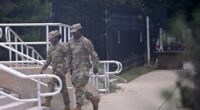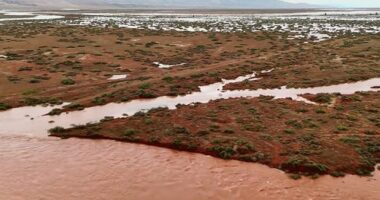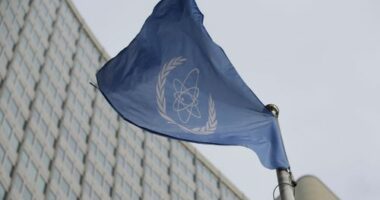Share this @internewscast.com
“Patients experience extreme thinness, a pale appearance, inability to walk or even speak or engage in play, along with severe anaemia, marasmus [extreme undernutrition] and kwashiorkor [critical protein depletion],” Hammad tells SBS News.
Hammad was pregnant when the conflict escalated and gave birth in January 2024.
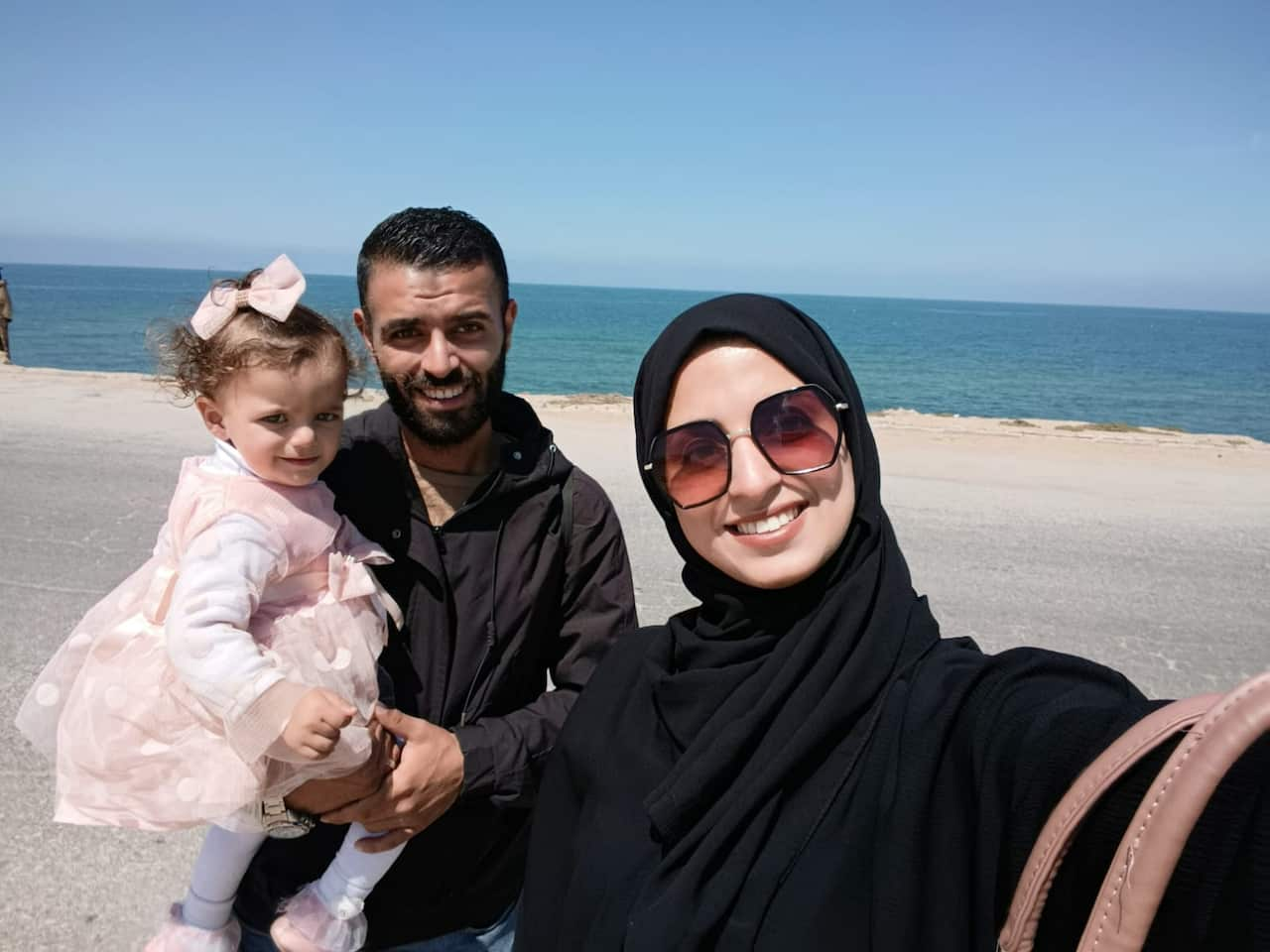
Noor Hammad, her husband Ahmed and daughter Hour visited the beach often during the two-month ceasefire between January and March. Source: Supplied
She was able to keep her daughter alive, but Hour remains malnourished.
“But this month, goods have started entering at very high prices.”
We buy a little of it so that we do not die of hunger.
Truckloads of essential supplies — including food and medications — remain stationary just kilometres from the camp, beyond Gaza’s southern border with Egypt.
“I do not know how they do this to us while we are innocent.”
Food aid ‘stranded in warehouses’

Noor Hammad is a clinical nutritionist in Gaza, volunteering for Spanish hunger relief organisation Acción contra el Hambre. Source: Supplied
In a statement to SBS News, a spokesperson for the IDF denied aid has been blocked, saying: “The IDF forcefully rejects the allegation of deliberate starvation of the civilian population.”
“This blockade has resulted in millions of dollars’ worth of food, medicine, water, and shelter supplies being left in storage across Jordan and Egypt,” reads a joint statement.
“To save lives and maintain basic humanity, the borders must be opened around the clock to allow access for thousands of trucks carrying millions of meals and medical supplies waiting nearby.”
“The IDF tirelessly collaborates with aid organizations and the international community to provide ongoing medical services, maintaining regular coordination with hospital representatives in Gaza and humanitarian groups to meet the health and humanitarian demands of hospitals — including medicine and necessary medical devices,” according to the spokesperson’s statement.
The GHF is ‘killing us every day’
But during the war, Elfaleet has instead turned his energy to keeping his family alive.
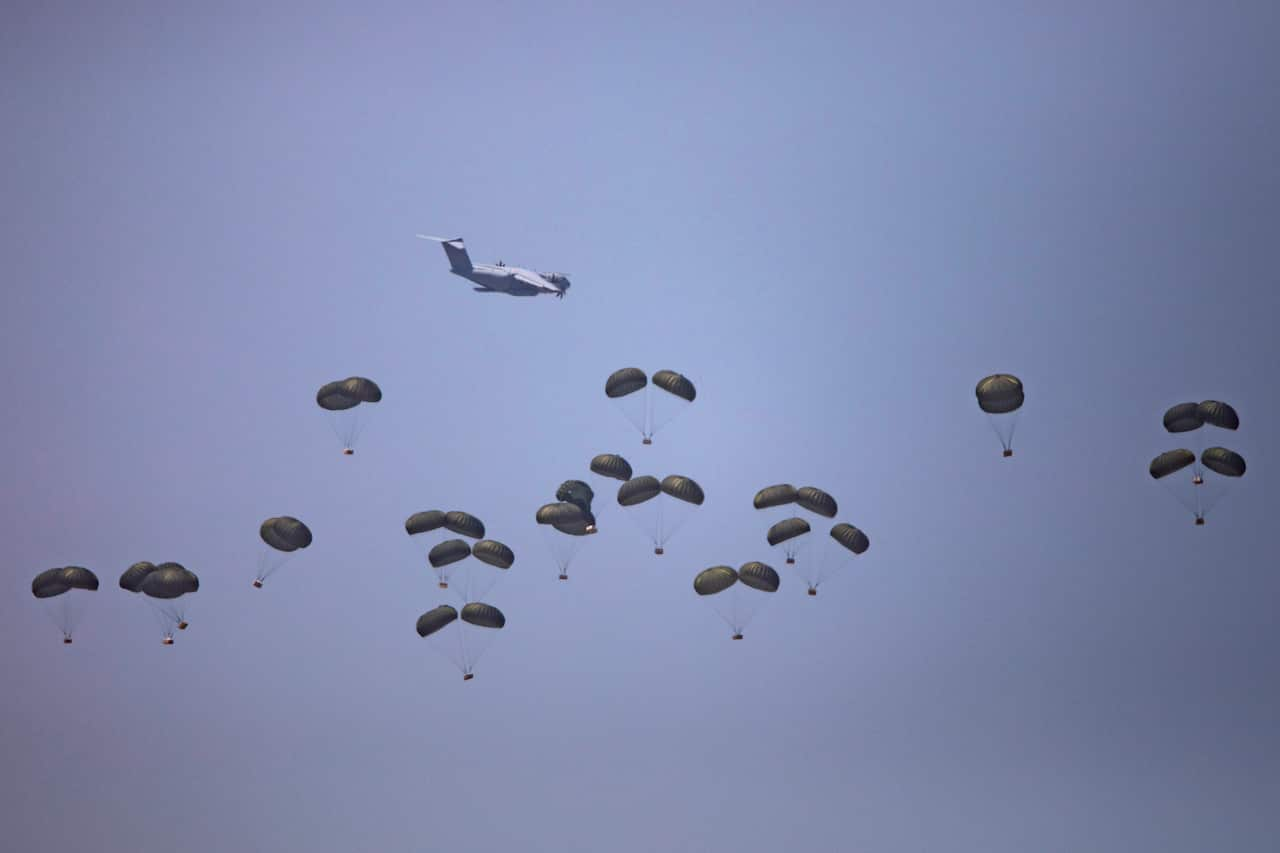
Some nations have begun air-dropping food, medicine, and other essentials into Gaza, but the UN warns it’s only a small portion of the aid required to support the strip’s starving population. Source: AAP / Haitham Imad
That was until Elfaleet was shot in the foot at a GHF aid site in June. Without access to medical treatment, he cannot leave the tent, Hammad explains.
“We lost him for several hours because he was unconscious. Then some people found him and took him to … the Red Cross Hospital in Rafah,” she says.
They [the GHF] claim to be helping us, but they are actually killing us every day.
Israel said those aid points were to be shut down because Hamas had corrupted the supply chains, accusing it of stealing and stockpiling aid.
However, Palestinians have shared images showing GHF-marked boxes containing a smaller selection of items.
SBS News has fact-checked this claim against UN data, which shows that since 27 May, 514 Palestinians have been killed along the routes of food convoys while seeking food. However, the data does not support the second part of GHF’s statement, instead showing a significantly higher number of deaths — 859 — have occurred in the vicinity of GHF sites, bringing the total to 1,373 deaths.
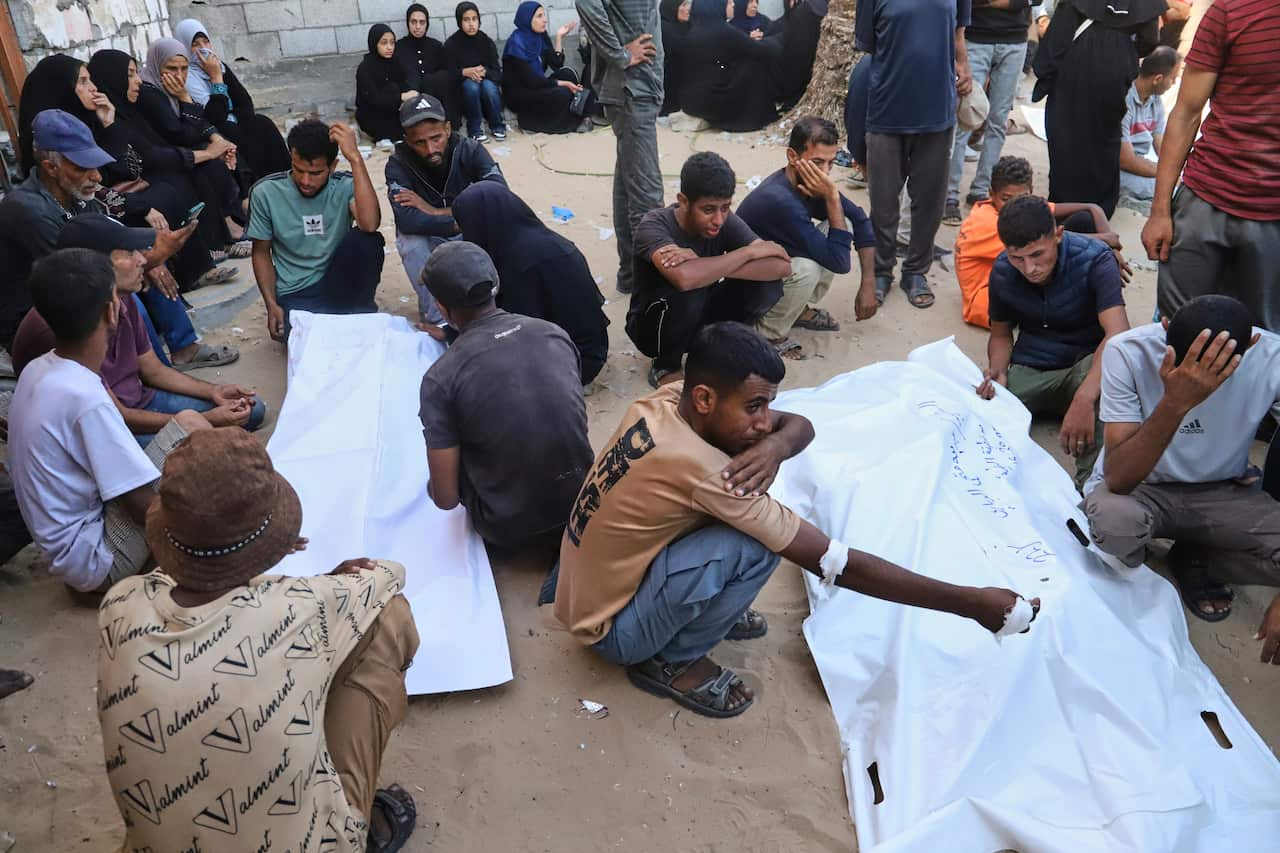
According to the UN, 859 Palestinians have been killed near GHF sites since May, a figure the GHF denies. Source: AAP / Mariam Dagga
In early June, 171 organisations called for GHF to be shut down for putting civilians at risk of injury and death.
“Humanitarian principles require that aid is never politicised or weaponised. Its delivery must be adequate, impartial, and responsive to the scale of devastation and starvation,” Duar says.
Even the staff of international agencies, including our own field workers, are starving.
“They are no longer able to carry out their work.”
‘I don’t see any end to it’
“I felt wonderful when I found out I was pregnant with my first daughter,” Hammad says.
That will require a Temporary Activity visa, subclass 408, which permits participation in events endorsed by the Australian government.
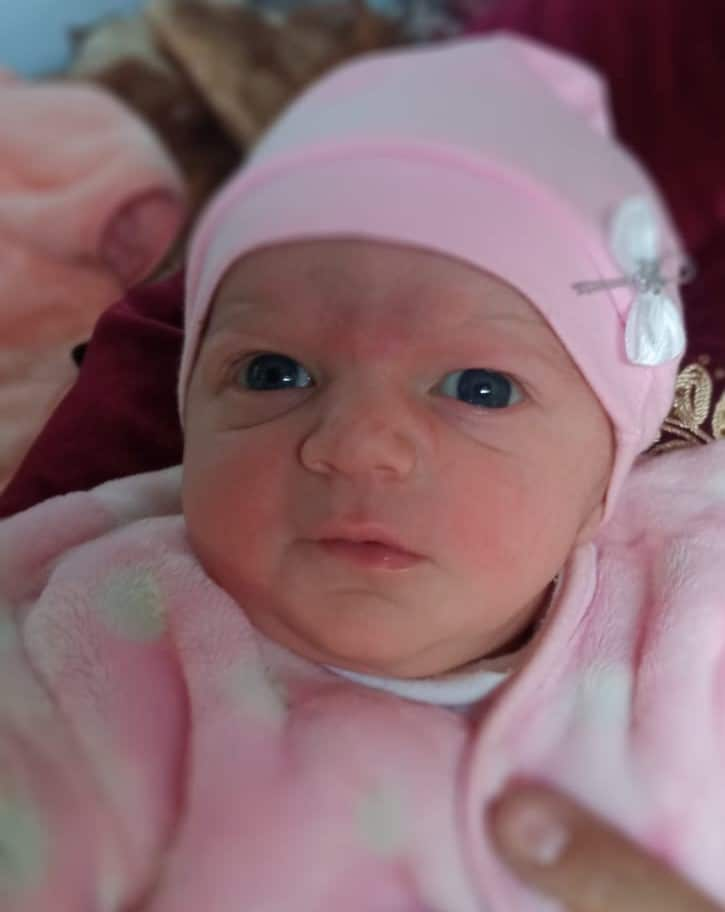
Hour has experienced malnutrition at different levels of severity over her short life. Source: Supplied
Hammad says she wants to share her lived experience of pregnancy and birth under threat of war and extreme malnutrition, including how “hunger and prolonged stress affect child development” and the “breakdown of caregiving structures under siege”.
